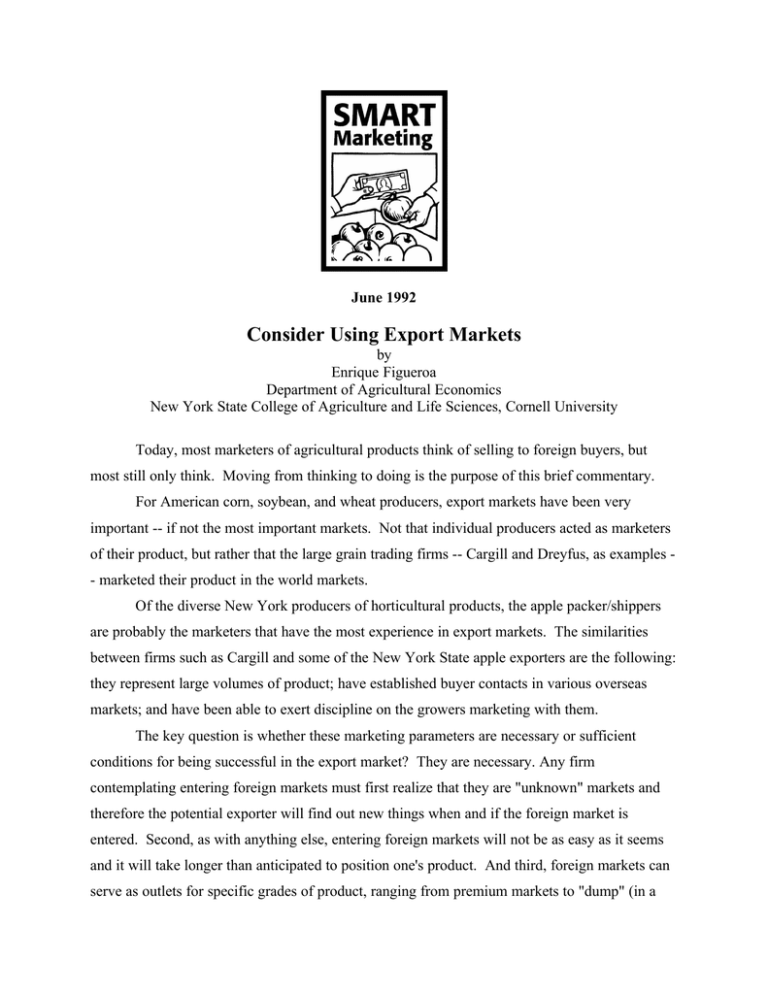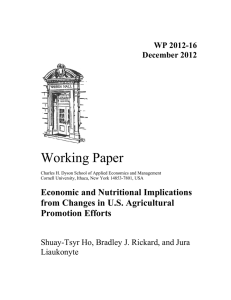Consider Using Export Markets
advertisement

June 1992 Consider Using Export Markets by Enrique Figueroa Department of Agricultural Economics New York State College of Agriculture and Life Sciences, Cornell University Today, most marketers of agricultural products think of selling to foreign buyers, but most still only think. Moving from thinking to doing is the purpose of this brief commentary. For American corn, soybean, and wheat producers, export markets have been very important -- if not the most important markets. Not that individual producers acted as marketers of their product, but rather that the large grain trading firms -- Cargill and Dreyfus, as examples - marketed their product in the world markets. Of the diverse New York producers of horticultural products, the apple packer/shippers are probably the marketers that have the most experience in export markets. The similarities between firms such as Cargill and some of the New York State apple exporters are the following: they represent large volumes of product; have established buyer contacts in various overseas markets; and have been able to exert discipline on the growers marketing with them. The key question is whether these marketing parameters are necessary or sufficient conditions for being successful in the export market? They are necessary. Any firm contemplating entering foreign markets must first realize that they are "unknown" markets and therefore the potential exporter will find out new things when and if the foreign market is entered. Second, as with anything else, entering foreign markets will not be as easy as it seems and it will take longer than anticipated to position one's product. And third, foreign markets can serve as outlets for specific grades of product, ranging from premium markets to "dump" (in a quality sense, not in economic terms) markets. The former being the most common among horticultural product producers. However, with greater risks come greater returns. Export markets for horticultural producers are attractive because American-produced products generally have a favorable quality image in most foreign countries. Also, as affluence rises in foreign markets, so will the demand for higher quality products -- particularly in Central and South American countries where the United States has a transportation advantage. Related to this last point is the opportunity to take advantage of the "back-haul" routes for the cargo ships bringing bananas to the U.S. market. The globalization of markets will continue to take place and market prices will more and more be a function of global markets rather than local and/or domestic markets. Given these attractive features of export markets, it is imperative that serious consideration be given to the firm's ability to supply the foreign markets without eroding the current customer base. In addition, phytosanitary and/or political factors play a significant role in successfully competing in foreign markets and therefore need to be taken into consideration.


